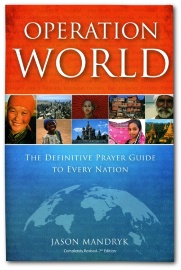Give Me This Day My Daily Bread: The Importance of a Personal Devotion
Food is fuel for the body. Much like food is to the body, the Word of God is fuel to our spirit. What amazes me is that as a society, we are driven to action if we discover a soul without food. And yet, we have millions of people everyday who are starving for spiritual food. A transformed life is someone who understands, practices and strives to consume the Word of God every day.
I admit; someday’s I don’t eat right. More importantly, some days I don’t feed myself spiritually like I should. Over the years I have learned a few tips that have helped to shape my “spiritual diet” and keep me “healthy” as a believer.
TIME AND PLACE – Oddly enough, some habits are good for you. Having a time and a place every day that you can be alone with God is a great way to start or end your day. Life happens. I know your schedule like mine gets interrupted. Because of that, it is even more important to make sure we start and/or end our day at the Lord’s table. Having a time and place makes that easier.
HAVE A PLAN – Use a devotional book; read the Bible through in a year; Read a chapter a day; Memorize scripture; Journal; and more. There is no one way to do a personal devotion. The key is to have a plan and to work that plan every day.
EVALUATE YOUR PLAN – Don’t get in a rut. Sometimes it is important to make sure that you keep your devotional time fresh. Buy a new devotional book; start in Revelation and go backwards; read 5 Psalms and 1 Proverb a day for a month; etc. Whatever you do, make it fresh.
BE CONSISTENT – If you miss a day, start again the next day. After awhile, you will begin to notice the difference when you miss a day. If it has been awhile since you have had a consistent “alone time” with God, commit right now to start today. It does make a difference.
The transformed life requires a daily conversation with God. Reading His Word and praying daily is the fuel to the “spiritual body” that prepares us for every good work. Be prepared in season and out. As food is to the body, so the Word of God is to your soul.
Sean P. Keith, Sunday School/Discipleship Strategist, Louisiana Baptist Convention





